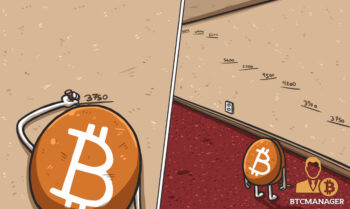2019-4-16 00:57 |
One of the most striking aspects of the oil-rich Gulf states are their large migrant populations: 88 percent of people in the United Arab Emirates (UAE), 75 percent in Qatar and 74 percent in Kuwait are foreign-born. The majority of these immigrants are workers on temporary visas to do jobs that their predominantly wealthy hosts won’t do. Many leave their families behind but remain the primary source of income for those dependents back home.
The Gulf states are largely cash economies. This is good for migrants whose temporary and low-paid status makes it difficult and expensive to open and maintain bank accounts. But lack of access to regular banking facilities forces them to use slow and expensive cross-border remittance services when it’s time to send money home.
Cross-border cash transfers can eat up as much as 9 percent of the amount sent, which makes it as profitable for the service providers as it is a bad deal for customers. It’s no surprise that fintech companies are using blockchain technology, mobile devices, social network plug-ins and chat services to disrupt the existing remittances process.
Blockchain Is Disrupting Traditional Remittances and Banks
According to the recently published “Remittance Market & Blockchain Technology” report by Blockdata, blockchain-based transactions are on average 388 times faster and 127 times cheaper than traditional remittances. By slashing the usual five-day process to a matter of minutes, while leaving users with significantly more money in their pockets, blockchain services are attracting the attention of migrants and native-born customers in the Gulf and beyond.
UAE-based mobile payments service Beam Wallet has already reached one-sixth of the country’s population in just two years. The company has processed more than $250 million of small value payments for groceries, cups of coffee and even fuel for their cars.
While traditional banks are often uninterested in serving these customers, Beam is demonstrating the potential of transforming cash-based economies into transaction-fee generators with fast and user-friendly mobile payment services. Cross-border remittances are an even bigger opportunity.
Replacing an Inefficient and Expensive Process
In 2018, the remittance market to developing countries was $528 billion, while the global market is expected to rise to $715 billion in 2019. This potential source of value is not confined to the Middle East. The US remains the top remittance-sending country in the world, while people in Germany and Switzerland sent nearly $50 billion across borders in 2017.
The current cross-border remittance process for banks involves dealing with a complicated correspondent banking network, tying up capital in prefunded nostro accounts and using outdated and expensive SWIFT technology. It means that enabling a migrant worker to send $100 to her family is not a priority for banks, no matter how big the overall market.
If the process was more effective and scalable, banks could easily unlock access to billions of dollars of new revenues. Blockchain technology enables direct connection to a recipient bank, which dramatically reduces the cost and increases the speed of processing, while removing the need for pre-funded accounts. All a bank has to do is tap into these new networks, which already exist and are growing every day.
Generating Greater Lifetime Value
Expanding their foothold in remittances is just the beginning for banks. Migrants and low-income households with access to bank accounts often become wealthier. One study shows that families given a savings accounts had 25 percent more monetary assets after a year than those without one. In Kenya, using mobile services to manage their money instead of cash helped 185,000 women switch from subsistence agriculture to business jobs with better prospects.
More financial stability allows people to become candidates for additional financial products and services like loans and credit cards, boosting their lifetime value for banks. Cross-border remittances can act as the banks’ entry strategy to winning new customers and becoming a top-of-wallet service that will turn a single-payment customer into a multi-transactional money-spinner.
Early Blockchain Adopters Will Thrive
Migrant communities—whether in the Middle East, the US or Europe—are typically tight-knit. The products and services that made their lives easier and better are passed on by word of mouth and become the go-to option across the community. Innovative new blockchain services have already raised customer expectations about how long remittances take, how much they cost and how easy they are to carry out.
If traditional banks do not move fast enough and become part of the blockchain revolution, they will be left behind. Forward-thinking banks who act to provide all customers with the kind of accessible, user-friendly, cheap, fast and transparent experiences they find elsewhere, will open up new markets, reach more customers and generate greater value for everyone.
About the Author
Roel Wolfert is Managing Partner at VGRIP and has more than 20 years of international experience on the edge of business and technology in retail & transactional banking, payments, cards, management consulting, IT and venture capital.
The post How Blockchain Will Help Banks Tap New Markets in MENA appeared first on Ripple.
Similar to Notcoin - TapSwap on Solana Airdrops In 2024
Time New Bank (TNB) íà Currencies.ru
|
|









































